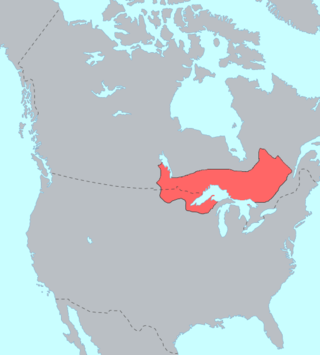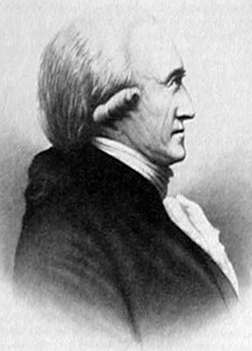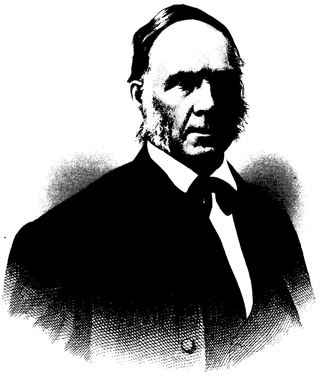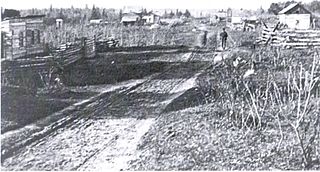Related Research Articles

Muskegon County is a county in the U.S. state of Michigan. As of 2020, the population was 175,824. The county seat is Muskegon.

Emmet County is a county located in the U.S. state of Michigan. It is the northernmost county in the Lower Peninsula. As of the 2020 Census, the population was 34,112, making it the second-most populous county in Northern Michigan. The county seat is Petoskey, which is also the county's largest city.

The Charter Township of Flint, also known as Flint Township, is a charter township of Genesee County in the U.S. state of Michigan. The population was 31,929 at the 2010 census. The City of Flint is adjacent to the township, but the two are administered autonomously.

The Ojibwe, Ojibwa, Chippewa, or Saulteaux are an Anishinaabe people in what is currently southern Canada, the northern Midwestern United States, and Northern Plains. They are Indigenous peoples of the Subarctic and Northeastern Woodlands.

The Territory of Michigan was an organized incorporated territory of the United States that existed from June 30, 1805, until January 26, 1837, when the final extent of the territory was admitted to the Union as the State of Michigan. Detroit was the territorial capital.

Benjamin Hawkins was an American planter, statesman and a U.S. Indian agent. He was a delegate to the Continental Congress and a United States Senator from North Carolina, having grown up among the planter elite. Appointed by George Washington in 1796 as one of three commissioners to the Creeks, in 1801 President Jefferson named him "principal agent for Indian affairs south of the Ohio [River]", and was principal Indian agent to the Creek Indians.

The Wea were a Miami-Illinois-speaking Native American tribe originally located in western Indiana. Historically, they were described as either being closely related to the Miami Tribe or a sub-tribe of Miami.

The Grand Traverse Band of Ottawa and Chippewa Indians is a federally recognized Native American tribe located in northwest Michigan on the Leelanau Peninsula. Sam McClellan is the current tribal chairman, elected in June 2016 to a four-year term after succeeding Al Pedwaydon, who served from 2012 to 2016.

Erastus Hussey (1800–1889) was a leading abolitionist, a stationmaster on the Underground Railroad, and one of the founders of the Republican Party. He supported himself and his family as a farmer, teacher, businessman, legislator, and editor.

John Okemos was a Ohioan Ojibwe (Chippewa) chief. He participated in Tecumseh's War and was a signatory of the Treaty of Saginaw. "Okemos" was the anglicised form of his Ojibwe language name ogimaans meaning "Little Chief". "John" was an adopted name.
The Treaty of Medicine Creek was an 1854 treaty between the United States, and nine tribes and bands of Indians, occupying the lands lying around the head of Puget Sound, Washington, and the adjacent inlets. The tribes listed on the Treaty of Medicine Creek are Nisqually, Puyallup, Steilacoom, Squawskin, S'Homamish, Stehchass, T'Peeksin, Squi-aitl, and Sa-heh-wamish. The treaty was signed on December 26, 1854, by Isaac I. Stevens, governor and superintendent of Indian Affairs of the territory at the time of the signing, along with the chiefs, head-men and delegates of the stated tribes. For the purpose of the treaty, these representatives who signed the treaty were stated to have been, "regarded as one nation, on behalf of said tribes and bands, and duly authorized by them."

Adam Beattie (1833–1893) was an American politician who served in the Michigan Senate as a Republican, representing District 17. During the American Civil War he was the Captain of the New York 26th Independent Battery, Light Artillery Barnes’ Rifle Battery.

The Potawatomi Trail of Death was the forced removal by militia in 1838 of about 859 members of the Potawatomi nation from Indiana to reservation lands in what is now eastern Kansas.

The Burt Lake Band of Ottawa and Chippewa Indians is a historic small State of Michigan-recognized band of Indians who live mostly in Emmet and Cheboygan counties. These two counties are located in the northernmost region of the Lower Peninsula of Michigan. Since 1985, the Burt Lake Band has petitioned the Bureau of Indian Affairs for re-recognition as a federally acknowledged band, a recognition first achieved in the 1830s.

Edward H. Tarrant was an American politician who served the Republic of Texas and the State of Texas by fighting multiple indigenous nations for two decades. He, along with John Nealy Bryan, John B. Denton, John H. Reagan, and surveyor Warren Angus Ferris, participated in the massacre of Caddo Indians along the Trinity (Arkikosa) River. Once all native people were removed from the area Bryan was able to claim the land, divide it, and sell it, all thanks to the efforts of Gen. Tarrant. This area along the Arkikosa is now known as Dallas, TX. He also served in the Texas House of Representatives during both periods.

The Burt Lake Burn-Out was a forced relocation of the Burt Lake Band of Chippewa and Ottawa Indians in northern Michigan's "Tip of the Mitt" region on 15 October 1900. On that day a sheriff and his deputies burned down the band's village at the behest of a local land developer who claimed to have purchased the village land parcels for back taxes.
The Treaty of Detroit of 1855 was a treaty between the United States Government and the Ottawa and Chippewa Nations of Indians of Michigan. The treaty contained provisions to allot individual tracts of land to Native people consisting of 40-acre (16 ha) plots for single individuals and 80-acre (32 ha) plots for families, outlined specific tracts which were assigned to the various bands and provided for the severance of the government consolidation of the Ottawa and Chippewa.
Benack's Village was an Indigenous village located in present-day Marshall County, in the present Potawatomi Wildlife Park. It was protected by terms of a treaty signed by its founder, Stephen Benack, and the United States government. The village existed from 1834 until 1848, one of the few Indian settlements allowed during The Removal Period.
Kentucky raid in Cass County (1847) was conducted by slaveholders and slave catchers who raided Underground Railroad stations in Cass County, Michigan to capture black people and return them to slavery. After unsuccessful attempts, and a lost court case, the Fugitive Slave Act of 1850 was enacted. Michigan's Personal Liberty Act of 1855 was passed in the state legislature to prevent the capture of formerly enslaved people that would return them to slavery.

Potter Cemetery is a privately owned, historic cemetery located in Ash Township in the U.S. state of Michigan.
References
Ashlee, Laura Rose (editor), Traveling Through Time: A Guide to Michigan's Historical Markers (revised edition), Ann Arbor: University of Michigan Press, 2005, p. 196.